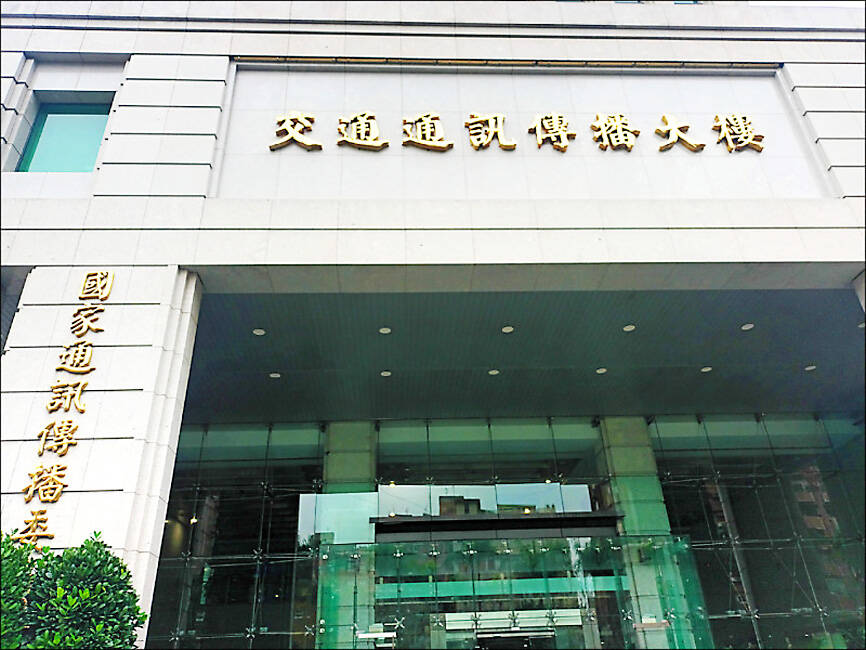The National Communications Commission (NCC) is to set up a special task force to monitor the situation when two telecom mergers take effect next month, it said yesterday.
Taiwan Star is to merge with Taiwan Mobile on Friday next week, while Asia Pacific Telecom (APT) is to merge with Far EasTone Telecommunications (FET) on Dec. 15. Taiwan Star and APT, which have 2.48 million and 1.99 million subscribers respectively, would cease to exist after the mergers.
Taiwan Star subscribers would not need to change their SIM cards for now unless they want to subscribe to other value-added services offered by Taiwan Mobile, NCC Vice Chairman Wong Po-tsung (翁柏宗) said.

Photo: Taipei Times file
APT subscribers would have to change their SIM cards after the merger, as the telecom uses the core network built by Nokia and FET uses Ericsson’s, Wong said, adding that FET should notify APT subscribers of the need to change their SIM cards.
“The synergy produced through telecom mergers should help enhance the quality of telecom services available to customers,” Wong said. “We hope that subscribers of the two new telecom companies would notice significant differences in terms of Internet speed and telecom service coverage before the end of January, otherwise [the telecoms] will be at the receiving end of subscribers’ fury.”
The task force would monitor whether Taiwan Mobile and FET offer reasonable monthly plans and follow their own time lines for changing subscribers’ SIM cards, or whether the mergers lead to any telecom service disruptions, Wong said.
Chunghwa Telecom, Taiwan Mobile and FET were in 2018 fined by the NCC for the chaos that broke out at their retail stores after they collectively offered a telecom service plan for NT$499 per month. The commission received numerous complaints about people having to wait hours to apply for the service plan.
Asked whether the commission is concerned about further chaos when subscribers collect new SIM cards at the telecoms’ stores, Wong said that the scenario is unlikely to happen.
“Given what happened in 2018, the telecoms should know by now that they need to offer subscribers multiple ways to change their SIM cards, instead of only allowing them to do so at retail stores. They need to find ways for people who have trouble leaving the house, live in remote areas or simply do not have time to change SIM cards,” Wong said.

Alain Robert, known as the "French Spider-Man," praised Alex Honnold as exceptionally well-prepared after the US climber completed a free solo ascent of Taipei 101 yesterday. Robert said Honnold's ascent of the 508m-tall skyscraper in just more than one-and-a-half hours without using safety ropes or equipment was a remarkable achievement. "This is my life," he said in an interview conducted in French, adding that he liked the feeling of being "on the edge of danger." The 63-year-old Frenchman climbed Taipei 101 using ropes in December 2004, taking about four hours to reach the top. On a one-to-10 scale of difficulty, Robert said Taipei 101

Nipah virus infection is to be officially listed as a category 5 notifiable infectious disease in Taiwan in March, while clinical treatment guidelines are being formulated, the Centers for Disease Control (CDC) said yesterday. With Nipah infections being reported in other countries and considering its relatively high fatality rate, the centers on Jan. 16 announced that it would be listed as a notifiable infectious disease to bolster the nation’s systematic early warning system and increase public awareness, the CDC said. Bangladesh reported four fatal cases last year in separate districts, with three linked to raw date palm sap consumption, CDC Epidemic Intelligence

US climber Alex Honnold left Taiwan this morning a day after completing a free-solo ascent of Taipei 101, a feat that drew cheers from onlookers and gained widespread international attention. Honnold yesterday scaled the 101-story skyscraper without a rope or safety harness. The climb — the highest urban free-solo ascent ever attempted — took just more than 90 minutes and was streamed live on Netflix. It was covered by major international news outlets including CNN, the New York Times, the Guardian and the Wall Street Journal. As Honnold prepared to leave Taiwan today, he attracted a crowd when he and his wife, Sanni,

Taiwanese and US defense groups are collaborating to introduce deployable, semi-autonomous manufacturing systems for drones and components in a boost to the nation’s supply chain resilience. Taiwan’s G-Tech Optroelectronics Corp subsidiary GTOC and the US’ Aerkomm Inc on Friday announced an agreement with fellow US-based Firestorm Lab to adopt the latter’s xCell, a technology featuring 3D printers fitted in 6.1m container units. The systems enable aerial platforms and parts to be produced in high volumes from dispersed nodes capable of rapid redeployment, to minimize the risk of enemy strikes and to meet field requirements, they said. Firestorm chief technology officer Ian Muceus said